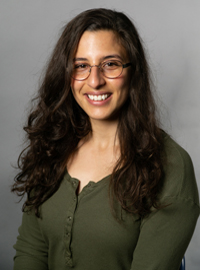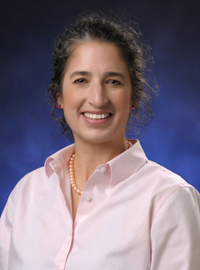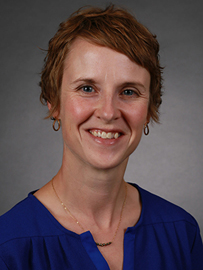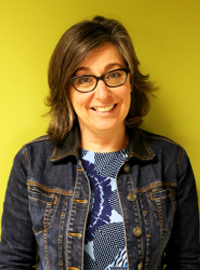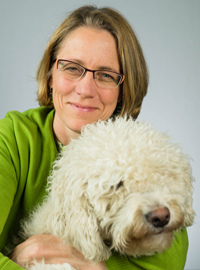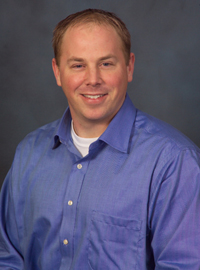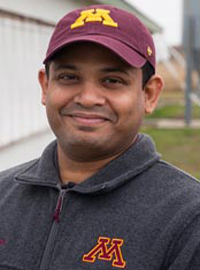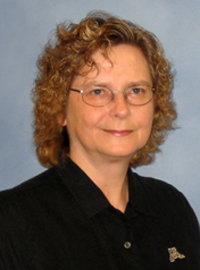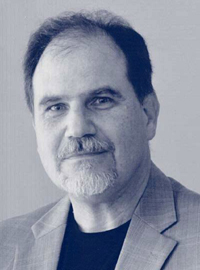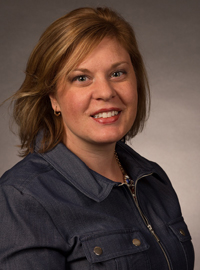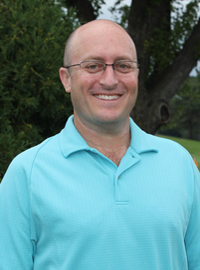University of Minnesota
Kahina Boukherroub
I enjoy teaching a variety of audiences, from undergraduate students to poultry producers. I use a science-based approach to deliver the content of my courses and enhance student engagement and learning.
My research uses whole animal, cellular, and molecular biology techniques to understand the mechanisms that drive the reproductive function of poultry species.
My background training is in biomedical and integrative Physiology. I have over 9 years of experience studying the mechanisms of ovarian follicle development in chicken and turkey hens. Since joining the Department of Animal Science at the University of Minnesota I have developed an interest in investigating the mechanisms of sperm storage and fertility in turkey hens.
Dr. Kahina Boukherroub is an Assistant Professor in the Department of Animal Science at the University of Minnesota. For more information, please visit Dr. Boukherroub's EXPERTS@MINNESOTA page.
Carol Cardona
Dr. Carol Cardona is the Pomeroy Chair in Avian Health for the College of Veterinary Medicine.
In addition to her expertise in avian influenza, Dr. Cardona is interested in zoonoses (infectious diseases that are transmitted between animals and humans) and the role that poultry play in human health and well being, especially in developing countries. She also serves as co-director/co-principal investigator of the Minnesota Center of Excellence for Influenza Research and Surveillance at the University.
As the Pomeroy Chair, Dr. Cardona collaborates with practitioners in Minnesota’s poultry industry, other scientists and veterinarians, and the Minnesota Board of Animal Health. Through this outreach work and the partnerships that result from it, she is able to advance strategic approaches to animal health and well-being that would be beyond the reach of an individual researcher.
Dr. Cardona has thus identified three critical large-scale issues—gut health, respiratory health, and animal welfare—for the Pomeroy Chair to focus on with its partners, and projects for each of these issues currently are underway.
Erin Cortus
"My mission is to work with producers and communities to understand and continually improve the quality and productivity of livestock environments."
Research or Education Focal Points - Past and ongoing projects consider the environmental influences and effects of livestock and poultry production. Dr. Cortus has extensive experience measuring the air quality impacts of different management practices in swine, poultry, dairy and beef cattle barns, in addition to ventilation management. Recent research and extension projects focus on biosecurity education and processes. Dr. Cortus is part of two national teams integrating systems thinking and transdisciplinary science into graduate level education - and these concepts have weaved their way into her research and Extension programming.
Work Tied to Poultry Problems - Dr. Cortus provides engineering expertise for poultry and other livestock systems - recognizing the differences and similarities across systems. Dr. Cortus focuses on helping a system provide a comfortable and biosecure environment for growth, to work hand-in-hand with nutrition, health and genetics.
Deb Freedman
Dr. Freedman works with the University of Minnesota researchers and scholars, government, food industry professionals, public school teachers, and other emergency responders to develop teaching materials, certificate programs, courses, and training guides.
Dawn Foster-Hartnett
“In my role as a science educator, I look for ways to kindle curiosity and wonder, ultimately empowering students to apply their knowledge in real life situations.”
I have over 20 years’ experience in microbiology and genomics research, writing and teaching undergraduate and graduate classes. My research and teaching focus on collaborative learning in face-to-face and online learning environments. My mission includes making high-quality education accessible to as many students as possible.
I am passionate about creating student-centered learning experiences that help students reach their professional goals.
Tim Johnson
"I am passionate about strengthening the rural workforce and providing flexible and cost-effective opportunities for underserved populations in the rural United States."
I have spent 15 years studying bacterial pathogens of poultry, including E. coli and Salmonella. I have also extensively studied the developing poultry microbiome, and identifying ways to positively impact it through probiotics and other alternative products. My work translates to applied genomics-based solutions and tools for producers to choose the correct probiotics and vaccines for their production environments.
I am excited that this platform enables stepwise training opportunities towards these endeavors.
Anup Johny
"The major goal of my research is to discover applied solutions to control foodborne pathogens such as Salmonella, Listeria, and Campylobacter in poultry production and processing. A major step to attaining this goal has been to develop natural, safe, and environmentally friendly alternatives to improve pre- and post-harvest poultry food safety."
In the past 10 years, I’ve been involved with developing pathogen challenge and intervention models in broilers and turkeys with a focus on emerging Salmonella. These models are being used to assess and/or refine existing and/or emerging antibiotic alternatives, including probiotics, prebiotics, vaccination, and phytobiotics, using applied microbiology and omics technologies. This approach has been supporting the poultry industry in devising efficient pathogen control strategies and contributing to the body of literature on the application of natural alternatives in poultry systems.
As a passionate teacher, I incorporate research-based knowledge to design and deliver courses that are exciting and worth investing in the new generation of students who are the leaders and future workforce in a sustainability-focused world.
Sally Noll
“My research and extension seeks to improve sustainability of commercial turkey production through aspects of feeding, well-being, health, internal and external environment of the bird and production system.”
My research is based on my needs assessment of the turkey industry through my extension position. It is important to me to provide practical application of problem solving to producers
while others are conducting research to build on the needed knowledge base. Most of my research revolves around the intersection of a variety of disciplines especially avian nutrition and physiology. I teach in a variety of settings to both undergraduate, graduate, and professional student levels. I love sharing my knowledge and helping students relate and connect that information to the real world.
Kent Reed
“My research applies molecular and bioinformatic tools to understand the functional genomics of the turkey and its response to the production environment.”
I have spent 20+ years studying the genome of the turkey; from early genetic mapping to whole genome sequencing, assembly and annotation. My work now applies these genomic tools to better understand how the commercially selected turkey genome responds to external stressors (thermal, toxins, disease).
I am driven to deliver rigorous and personalized education that affords opportunities for meaningful careers in agricultural biosciences.
Abby Schuft
“As an educator, my goal is to see your farm business flourish by helping optimize production by providing information and applied solutions based on research.”
My varied background in animal agriculture has built my passion for Extension education related to biosecurity and emergency preparedness. I currently focus on educating poultry producers and backyard poultry owners about applied biosecurity, Danish entry system requirements, and NPIP Biosecurity auditing. I am also involved in the development of innovative biosecurity outreach tools and technologies such as the Biosecure Entry Education Trailer (BEET) and the web-based Poultry Disease Planning Tool, as well as a contributor to the Secure Poultry Supply programs as an outreach and teaching specialist.
I want each participant to finish the course with information that will help them weigh options and make a decision appropriate for their farm that will have positive outcomes for their daily or long-term operations. I am passionate about my work because I value the hard work you put forth to provide food for my neighbors, family, friends and me.
Randy Singer
We study the complex and diverse array of conditions that influence the emergence, evolution, persistence, and spread of bacterial and viral pathogens at the interface between humans, animals, and the environment.
Specific questions that we address include:
- How do we mitigate antimicrobial resistance in agricultural systems so that risks to human and animal health are minimized?
- Will an improved understanding of food production systems at multiple scales enable us to significantly reduce the risk of Salmonella, Campylobacter, and other foodborne pathogens using currently available technology?
- How can we predict the spread of diseases over extended geographical distances, including those diseases that are transmitted by insects and arthropods?
Our work on these questions combines approaches in the fields of epidemiology, microbiology, molecular biology, mathematical and statistical modeling, public health, animal agriculture, and systems thinking.
